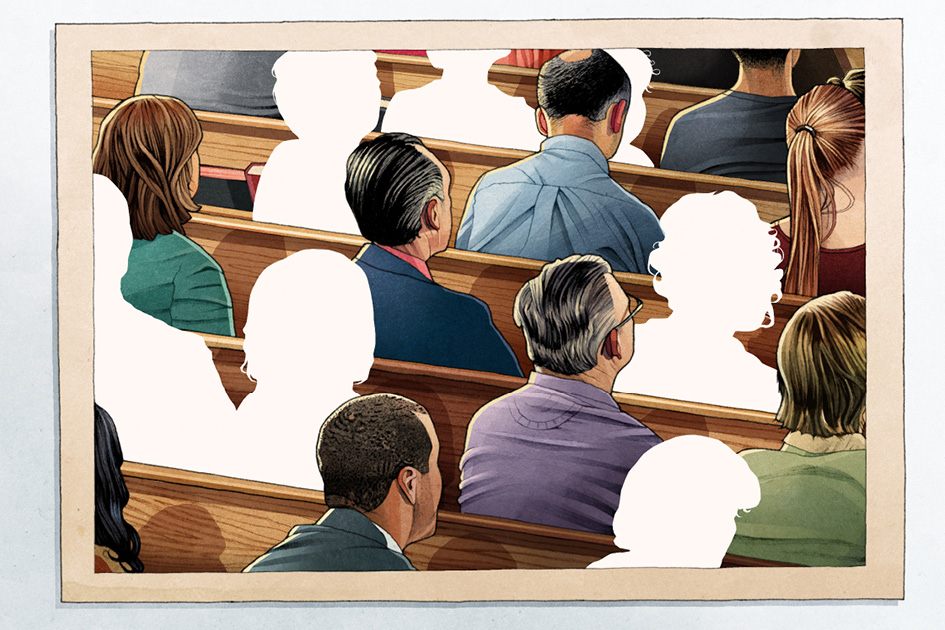My friend Darrell stood in the middle of the parking lot of our church with a stick, a string, and a can of spray paint. To the general passersby, he would have looked like a crazy person, methodically spinning around and creating large white circles on the pavement. By the time he finished, dozens of round marks dotted the lot like a giant game of Tic-Tac-Toe without the X’s. This was how our church had decided to worship during the pandemic—outdoor services, with markers to keep individual families a safe distance from one another. And we also chose, for a time, to require masks.

Like many other congregations, we had people leave during COVID. Some thought we took measures too seriously. Some thought we didn’t take them seriously enough. And for some, including friends of mine, it became the reason to finally take a break from church.
When I became a believer at 18 and joined a tightknit campus fellowship in college, I lived, worshipped, and served alongside brothers and sisters—many of whom I remain close with to this day. That group became a lab that taught me how to walk out my faith with others. We didn’t need community just to find our home away from home; we needed each other in order to grow in Christ.
I’ve tried to be faithful to this value in the decades since. And lately, the shifting dynamic of church attendance brought a passage from Hebrews to mind: “And let’s consider how to encourage one another in love and good deeds, not abandoning our own meeting together, as is the habit of some people, but encouraging one another; and all the more as you see the day drawing near” (Heb. 10:24-25).
The writer of Hebrews had good reason to warn against forsaking fellowship: so that believers could “encourage one another in love and good deeds.” And he added the line about “all the more,” as listeners to this epistle were waiting for “the day”—that is, the earthly return of Christ. Two thousand years later we know this has yet to happen, so doesn’t this exhortation still make sense for us?
Nothing about my spiritual formation will develop in a vacuum. I need fellowship with brothers and sister in the faith.
I wish I didn’t have to admit to personal weakness, but I do—regularly. After all, I’m often too quick to judge, I have more blind spots than I care to acknowledge, and I get discouraged. While it’s taken years to see the value of transparency, I’m thankful to recognize that nothing about my spiritual formation will develop in a vacuum. I need fellowship with brothers and sister in the faith because I’m needy.
Of the people I know who’ve stopped attending church, some felt failed by leadership. Others realized that corporate worship didn’t mean as much to them as they thought; perhaps they’re getting fellowship needs met elsewhere. And while I don’t agree with these reasons to abandon church attendance, ultimately I can at least understand where each person is coming from. Because yes, being in church can be hard. Building community takes work and vulnerability. We often bring our own expectations, not realizing doing so simply sets us up for failure. And yes, there are churches in America whose doorstep I wouldn’t darken—not foremostly out of theological differences but because religiosity trumps the presence and peace of God. Despite all this, the exhortation from Hebrews is vital to our ultimate spiritual wellbeing.
In a cultural climate where unsolicited advice is less than welcome, I find it challenging to tell my friends to go back to church. I mean, they should. But my best bet is to try to maintain contact and, in the times we do engage in fellowship outside of church, encourage them to return someday. Because the truth is, you need not take part in corporate worship to call Jesus Lord and Savior. And yet when we don’t gather in His name, we forfeit some of His greatest gifts to us. We miss the chance to be truly known and to spur one another on to greater Christlikeness.





